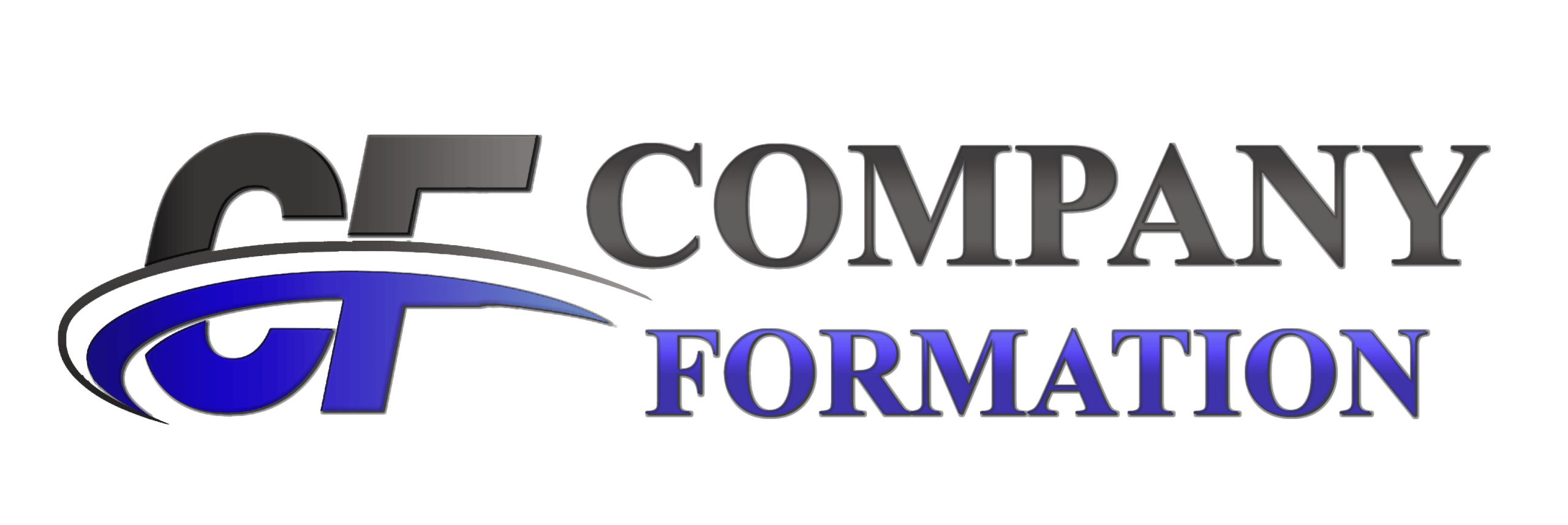How to start a cafeteria business in the UAE?
When starting a new cafeteria business in Dubai, first select a distinct commercial name for the cafeteria, apply for a trade license with the Department of Economic Development (DED), and secure a food license with the Dubai Municipality’s Food Safety Department. Also, get a tenancy agreement. Secure food safety approvals. Apply for other permits, like food consignment release or pork permits, if needed. Estimated costs are between AED 120,000–170,000, incorporating licenses, rental expenses, and fitting out the interiors. Collaborate with business setup consultants in Dubai to expedite the entire process. Expect 2-4 months to complete licensing.
Why Start a Cafeteria Business in Dubai’s Multicultural Hub?
Dubai’s thriving tourism and its diverse population of over 200 nationalities make it a top spot for cafeteria businesses. Every year, a million tourists visit the UAE. This boosts the need for international food and cozy coffee shops. With the busy lives of locals and tourists, many people search for “a cafeteria near me” for quick, quality meals.
Dubai’s status as a multicultural metropolis drives this growth in the UAE’s food sector. The city’s gastronomy culture accepts new attempts ranging from food stalls to Dubai’s best coffee shops. In addition, there are numerous government policies and favorable tax frameworks that promote entrepreneurship. Be it opening a single coffee house in Dubai or an entire chain, the opportunities are enormous.
What Are the Benefits of a Cafeteria Business in Dubai?
Diverse Population and Tourist Footfall
Today, Dubai is an expatriate hub welcoming people from Asia, Europe, America, and the Middle East. The diverse crowd loves trying new foods from around the world. This creates a demand for cafes that serve Arabic coffee and Western pastries. Coupled with over four million annual tourists, the city receives a steady flow of customers looking for the best coffee shops.
Take, for example, a small cafeteria business located in close proximity to popular attractions like the Dubai Mall. The enduring appeal of these locations ensures a constant flow of both local patrons and tourists. Dubai’s diverse society ensures a wide range of customers. This helps reduce the chance of lower foot traffic.
Government Incentives and Infrastructure
The UAE government makes it easy to Business Setup in Dubai. They provide great tax options and simple processes. Setting up a business in UAE is easy. This is due to its great infrastructure. There are modern commercial buildings and excellent transportation systems. Other government support policies such as tax breaks in free zones, for example, Meydan Free Zone, make setting up business in a free zone a rational decision.
Residents in Dubai have high disposable income which increases cafeteria profitability as customers spend generously to eat out. The city’s importance as a business center also draws in corporate clients, making it ideal for coffee shops that serve meetings.
Steps For How to Obtain a Cafeteria License in Dubai?
In Dubai, it is mandatory to possess a cafeteria license to operate a cafeteria business. Obtaining the required license can be accomplished through the steps listed below:
Step 1: Choose a Commercial Name:
- The cafeteria name provided must not duplicate other commercial names used. Offensive language and acronyms should also be avoided, and the name must be vetted through the Dubai Registry Office.
Step 2: Obtain Initial Approval:
- Acquaint yourself with the criteria of submitting the relevant application for further proof with the Department of Economic Development (DED) such as the business activity 5610.02 – Cafeterias.
Step 3: Ratify a Lease Agreement:
- Execute a tenancy contract for the location of your cafeteria. Register it with Ejari for legal recognition.
Step 4: Sign Legal Documents:
- Propose a Memorandum of Association (MOA) or Lease Share Agreement (LSA), which describes participation in and control over a certain activity.
Step 5: Get Food Safety Approvals:
- Obtain compliance clearance from Dubai Municipality’s Food Control Department regarding food safety and hygiene measures.
Step 6: Drainage and Civil Defence:
- Get compliance approval from the Department of Drainage and Irrigation concerning waste and Civil Defence EHS (fire safety) certification.
Step 7: Submit License Application:
- Submit all relevant documents in person at the DED, with passport copies and prior company name approval.
Step 8: Receive Your License:
- The DED grants you a trade license after审核, which generally ranges between 2 – 4 months.
Step 9: Complete Interior Fit-Out:
- Employ a listed authorized contractor for interior fit-out works in relation to the kitchen and Dubai Municipality’s directives.
Step 10: Process Visas:
- Apply for Dubai employment visas for you and new staff through the DED or free zone authority.
Step 11: Start Operations:
- You may open the cafeteria after all the permits have been obtained.
Working with business setup consultants in Dubai can alleviate the workload while ensuring compliance with UAE business laws.
Documents Required for Cafeteria Setup
These are the primary documents needed to obtain a cafeteria license in Dubai:
- Trade License application from the DED.
- Food License application from Dubai Municipality, applying through the Food Safety section.
- Tenancy Contract demonstrating shelled-out premises.
- Passport Copies of all partners and shareholders owning the business.
- Memorandum and Articles of Associate (MAOA).
- Certification of Company Name Approval from Dubai Registry Office.
- Food Safety Authority issues a Food Safety Approval certificate.
- The Planning Department issues a Construction Permit for the layout submitted.
- Approval drawings prepared by Registered Interior designers as part of the ID Submission Package.
- Other Permits (e.g., license for consignment of food, license to process pork, motor vehicle permit).
What Is the Cost of Starting a Cafeteria in Dubai?
Breakdown of Cafeteria License Costs
The cost of a cafeteria in Dubai varies based on size, location, and setup. Here’s a detailed breakdown:
- Trade License: AED 10,000–15,000 annually (DED).
- Food License: AED 5,000–10,000 (Dubai Municipality).
- Initial Approval Fees: AED 120 (one-time).
- Name Approval Fees: AED 620 (one-time).
- Notary Fees (MOA/LSA): AED 1,075 (one-time).
- Professional License: Up to AED 28,000 for specialized setups.
- Immigration Card: AED 750 annually.
- Investor Residence Visa: AED 4,250 (valid for 3 years).
- Total License Costs: AED 24,000–35,000.
For a small cafeteria, expect a minimum of AED 120,000, including licenses and startup expenses. A high-end coffee shop with premium interior fit-out and a prime location may cost up to AED 170,000.
How to Choose the Perfect Location for Your Dubai Cafeteria?
Mainland vs. Free Zone Setup
Choosing between the mainland and the free zone impacts your cafeteria business in Dubai. Mainland setups allow you to operate anywhere in Dubai, ideal for cafeterias in high-traffic areas like malls or tourist spots. However, you may need a local sponsor for full ownership.
Free zones like the Meydan Free Zone offer 100% foreign ownership, tax exemptions, and free zone benefits. They’re perfect for coffee shops targeting niche markets or mobile food service regulations (e.g., food trucks, nonmotorized carts). Business setup in Freezone also simplifies visa processes.
Zoning and Space Requirements
Your cafeteria must meet Dubai Municipality’s zoning regulations:
- Minimum area: 500 sq.ft for cafeterias, 300 sq.ft for kitchens (or 380 sq.ft with a tandoor).
- Sanitary spaces for food prep and storage.
- Fireproof walls, floors, and ceilings, with adequate ventilation.
- Separate storage areas for frozen items and cleaning chemicals.
- Pest control contract with a certified company.
Choose high-traffic areas like Jumeirah or Sheikh Zayed Road to attract customers searching for a cafeteria near me. Ensure your location supports waste management and complies with EHS certification.
What Are the Food Safety Requirements for a Cafeteria in Dubai?
Dubai Municipality Guidelines
Food safety compliance is critical for your cafeteria license in Dubai. Dubai Municipality enforces these guidelines:
- Fireproof materials for walls, floors, and ceilings.
- Adequate ventilation and lighting for hygiene.
- Separate washbasins for utensils, vegetables, and meat.
- Cold and hot water supply systems.
- Pest control contract to prevent infestations.
- No cracks in the structure to ensure cleanliness.
- Smoke distance: Maintain 2 meters from adjacent buildings.
Submit a kitchen design blueprint from a registered engineering office. It should detail the equipment and layout. Send this to the Food Control Department.
Special Permits for Unique Offerings
Depending on your menu, you may need:
- Food Safety Certification: Ensures compliance with HACCP certification in Dubai.
- Pork Permit: For handling non-halal items.
- Liquor License: If serving alcohol.
- Vehicle Permit: For food trucks or delivery services.
- Consignment Release Permit: For importing food products.
- Halal Certification: To cater to Muslim customers.
Pro Tip: Stay updated on Dubai Food Trends 2025 to offer sustainable or plant-based options that appeal to the foodie movement.
How to Market Your Cafeteria Business in Dubai?
Digital Marketing Strategies
To stand out among coffee shops in the UAE, invest in digital marketing strategies:
- Local SEO: Optimize for a cafeteria near me and the best coffee shops in Dubai to rank on Google Maps.
- Social Media: Post vibrant photos of your cafeteria on Instagram and TikTok, targeting Dubai’s foodie culture.
- Google Ads: Run campaigns for cafeteria businesses in Dubai to attract tourists and locals.
- Influencer Partnerships: Collaborate with food bloggers to review your coffee shop.
For example, a cafeteria offering unique lattes can go viral by sharing a reel featuring its barista’s art, boosting visibility.
Leveraging Dubai’s Foodie Culture
Tap into Dubai’s culinary market by hosting events like coffee tastings or live music nights. Offer promotions during international events like the Dubai Food Festival to attract tourists. Create a cozy vibe that makes your cafeteria feel like one coffee house in Dubai, encouraging repeat visits.
What Are the Staffing and Visa Requirements for a Dubai Cafeteria?
Hiring a Skilled Workforce
Your cafeteria needs a highly qualified workforce, including baristas, chefs, and servers. Dubai’s diverse population offers a talent pool skilled in global culinary traditions. Use platforms like LinkedIn or local job boards to hire.
Expect to pay:
- Baristas: AED 3,000–6,000 monthly.
- Chefs: AED 5,000–12,000 monthly.
- Managers: AED 10,000–20,000 monthly.
How to Ensure Sustainability in Your Dubai Cafeteria?
Eco-Friendly Practices
Sustainability is a growing trend in the UAE food industry. Adopt eco-friendly practices to attract environmentally conscious customers:
- Use biodegradable cups and straws.
- Source local, organic ingredients to reduce carbon footprint.
- Install energy-efficient appliances.
Waste Management Solutions
Comply with Dubai Municipality’s waste management rules:
- Install proper drainage systems for food waste.
- Partner with recycling companies for sanitary spaces.
- Train staff on food processing to minimize waste.
Pro Tips for a Successful Cafeteria Business in Dubai
- Focus on Quality: Offer quality food to compete with the best coffee shops in UAE. For example, source premium coffee beans for a standout menu.
- Leverage Free Zones: Choose a business setup in a free zone for free zone benefits like 100% foreign ownership and lower costs.
- Stay Updated: Monitor Dubai food trends 2025 to introduce innovative menu items, like vegan pastries.
- Hire Experts: Work with business setup consultants in Dubai for company formation in Dubai, saving time and ensuring compliance.
- Engage Locally: Partner with local events to position your cafeteria as a community hub, boosting cafeteria near-me searches.
FAQs About Starting a Cafeteria in Dubai
Q1:How much does a cafeteria license cost in Dubai?
A cafeteria license in Dubai costs AED 24,000–35,000, including trade license, food license, and approvals. Total setup costs range from AED 120,000–170,000.
Q2: How long does it take to start a cafeteria in Dubai?
It takes 2–4 months to obtain a cafeteria license and complete setup, depending on location and paperwork.
Q3: What are the food safety requirements for a Dubai cafeteria?
Dubai Municipality requires fireproof materials, adequate ventilation, separate storage areas, and a pest control contract. You may need permits like a pork permit or halal certification.
Q4: Is a cafeteria business profitable in Dubai?
Yes, with tourist footfall and a diverse population, cafeterias are highly profitable. A strategic location and quality food ensure success.
Q5: Can I start a cafeteria in a free zone?
Yes, business setup in free zones like Meydan Free Zone offers free zone benefits, including 100% foreign ownership and tax exemptions.
Q6: How do I market my cafeteria in Dubai?
Use digital marketing strategies like local SEO, social media, and influencer partnerships to attract customers searching for the best coffee shops in Dubai.
Conclusion: Launch Your Dream Cafeteria in Dubai
Starting a cafeteria business in Dubai, UAE, is a golden opportunity to tap into a multicultural hub with a thriving tourism industry. From securing a cafeteria license in Dubai to mastering food safety compliance, the process takes 2–4 months and costs AED 120,000–170,000. With government incentives, advantageous tax laws, and a diverse population, your cafeteria can thrive in Dubai’s foodie culture.
Ready to open your coffee shop? Partner with experts for business setup in UAE to navigate UAE business regulations and launch your dream cafeteria. Whether it’s a cozy coffee house in Dubai or a bustling eatery, Dubai’s culinary market awaits you.







